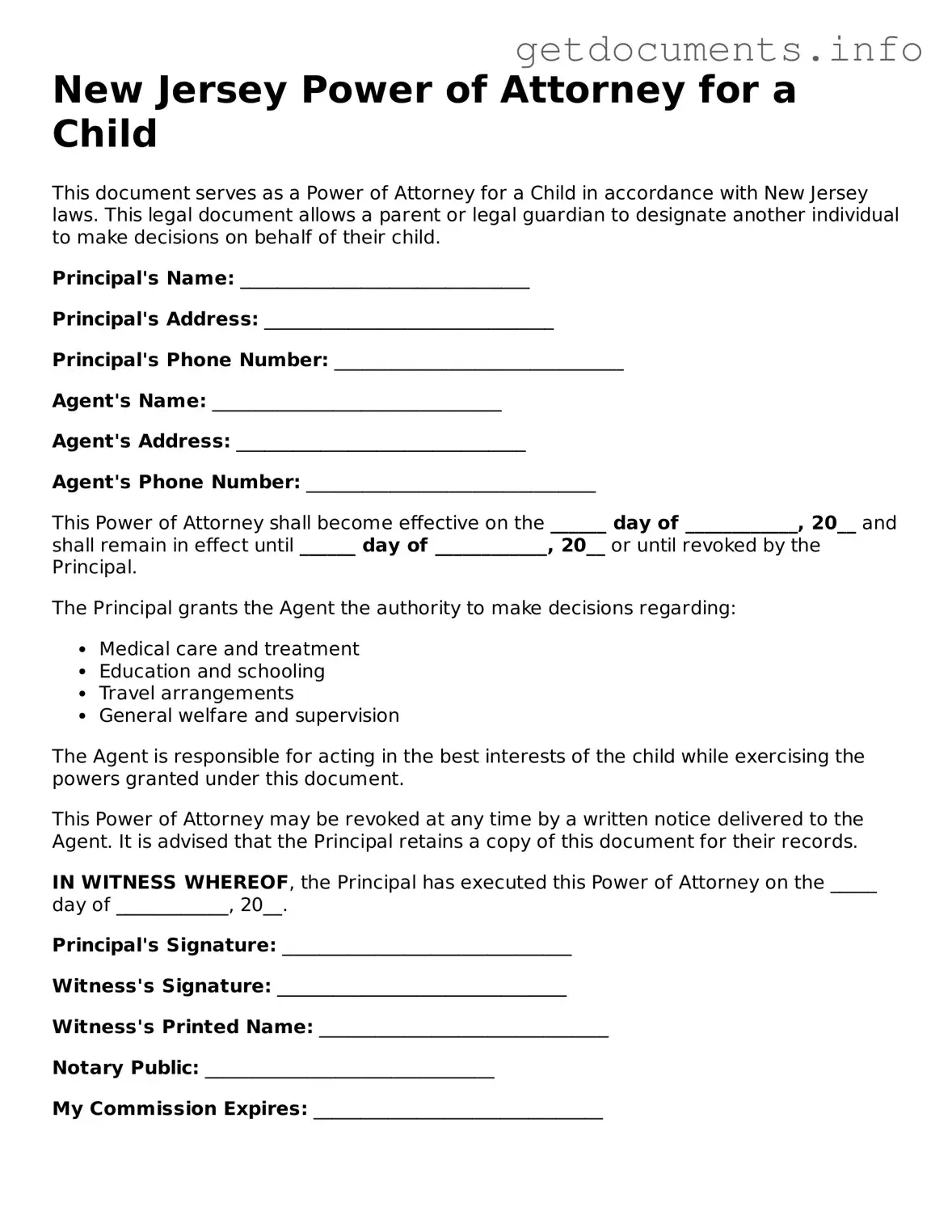Free Power of Attorney for a Child Template for New Jersey
The New Jersey Power of Attorney for a Child form is a legal document that allows a parent or guardian to designate another adult to make decisions on behalf of their child. This arrangement is especially useful for temporary situations, such as when parents are away or unable to care for their child. Understanding how to properly fill out this form can ensure that your child's needs are met seamlessly.
Ready to take the next step? Fill out the form by clicking the button below.
Access Power of Attorney for a Child Editor

Free Power of Attorney for a Child Template for New Jersey
Access Power of Attorney for a Child Editor
Got places to be? Complete the form fast
Fill out Power of Attorney for a Child online and avoid printing or scanning.
Access Power of Attorney for a Child Editor
or
⇩ PDF File
